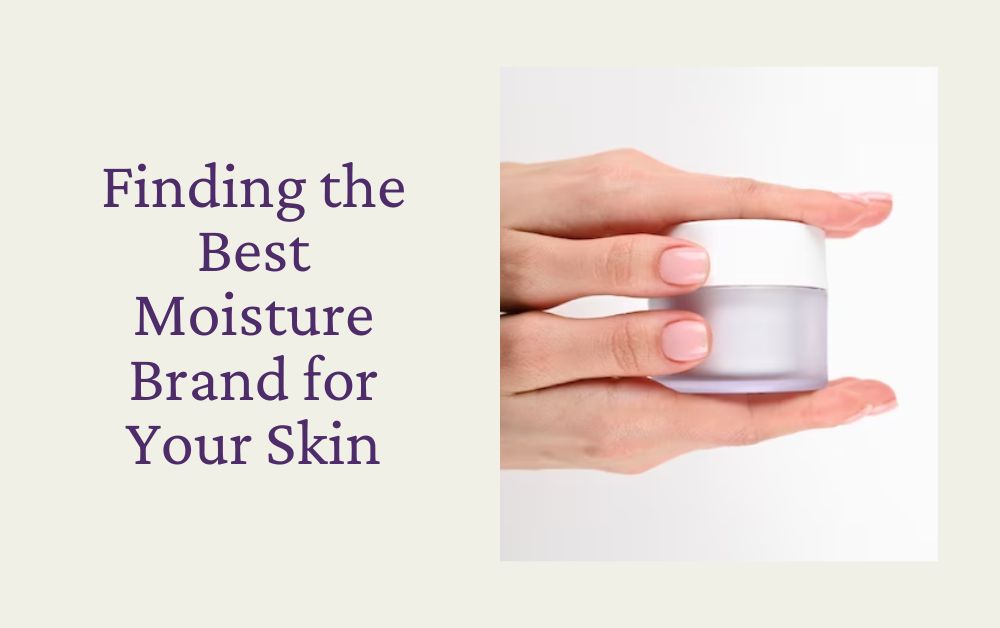Introduction
When it comes to skincare, one of the most essential steps in your routine is moisturizing. But with countless brands and products on the market, choosing the Best Moisture Brand for your skin can be overwhelming. In this article, we’ll break down the key factors to consider when selecting a moisturizer and explore some of the top brands that consistently deliver high-quality products. Say goodbye to dry skin and hello to a radiant complexion!
Why Moisturizing Matters
Before diving into the world of moisturizers, let’s understand why moisturizing is so crucial for your skin.
Hydration Is Key
Our skin is our body’s largest organ, and it requires proper hydration to function at its best. Moisturizers play a vital role in keeping our skin hydrated by preventing water loss and sealing in moisture. This helps maintain the skin’s natural barrier, keeping it healthy and glowing.
Skin Types Matter
Not all moisturizers are created equal, and different skin types have unique needs. Whether you have oily, dry, sensitive, or combination skin, choosing a moisturizer that caters to your skin type can make a world of difference in achieving the best results.
Addressing Skin Concerns
Besides hydrating your skin, moisturizers can also address specific skin concerns. Whether you’re dealing with acne, aging, redness, or uneven skin tone, there’s likely a moisturizer formulated to target your particular issue.
Choosing the Right Moisturizer
Now that we understand the importance of moisturizing let’s explore the factors to consider when selecting the perfect moisturizer for your skin.
Skin Type
Identifying your skin type is the first step in finding the best moisturizer. Here are some general guidelines:
- Oily Skin: Look for oil-free or non-comedogenic moisturizers to avoid clogging pores.
- Dry Skin: Opt for a rich, hydrating moisturizer with ingredients like hyaluronic acid or shea butter.
- Sensitive Skin: Choose a fragrance-free, hypoallergenic moisturizer to minimize the risk of irritation.
- Combination Skin: Consider using different moisturizers for different areas of your face. For example, a lighter moisturizer for the T-zone and a richer one for the cheeks.
Ingredients
The ingredients in a moisturizer can make or break its effectiveness. Look for these key ingredients:
- Hyaluronic Acid: Excellent for hydration, as it can hold up to 1000 times its weight in water.
- Ceramides: Help strengthen the skin’s barrier and lock in moisture.
- Glycerin: Attracts and retains moisture, keeping the skin supple.
- Antioxidants: Combat free radicals and protect the skin from environmental damage.
- SPF: For daytime use, consider a moisturizer with SPF to shield your skin from harmful UV rays.

Texture and Consistency
The texture of a moisturizer can affect how it feels on your skin. Some common textures include:
- Creams: Rich and thick, ideal for dry skin.
- Gels: Lightweight and suitable for oily or combination skin.
- Lotions: A middle ground between creams and gels, suitable for various skin types.
Fragrance and Allergens
If you have sensitive skin, it’s best to choose fragrance-free products to avoid potential irritation. Additionally, check for common allergens in the ingredients list, especially if you have known sensitivities.
Tips for Effective Moisturizing
Now that you have some top brands to consider, let’s wrap up with a few tips for effective moisturizing to ensure you get the most out of your chosen product.
Consistency is Key
Moisturizing should be a part of your daily skincare routine. Apply your chosen moisturizer in the morning and evening after cleansing your face. Consistency will yield the best results over time.
Don’t Forget Your Neck and Hands
Your face isn’t the only area that needs moisture. Remember to extend your moisturizing routine to your neck and hands, as they can show signs of aging and dryness too.
Layering Products
If you have specific skincare concerns, consider layering your products. Apply serums or treatments before your moisturizer to target specific issues like acne or fine lines.
Patch Test
Before using a new moisturizer all over your face, it’s a good idea to patch test it. Apply a small amount to a discreet area of your skin to check for any adverse reactions.
Sunscreen Is a Must
If your moisturizer doesn’t contain SPF, be sure to apply sunscreen as the final step in your morning routine. Sun protection is essential for preventing premature aging and skin damage.
Also read our other blog :- Discovering the Best Moisture Brand for Radiant Skin
Conclusion
In conclusion, finding the best moisturizer for your skin doesn’t have to be a daunting task. By considering your skin type, desired ingredients, and texture preferences, you can narrow down your options. Additionally, exploring reputable brands like CeraVe, Neutrogena, La Roche-Posay, Olay, and Aveeno can help you discover the perfect moisturizer that caters to your unique skincare needs.

